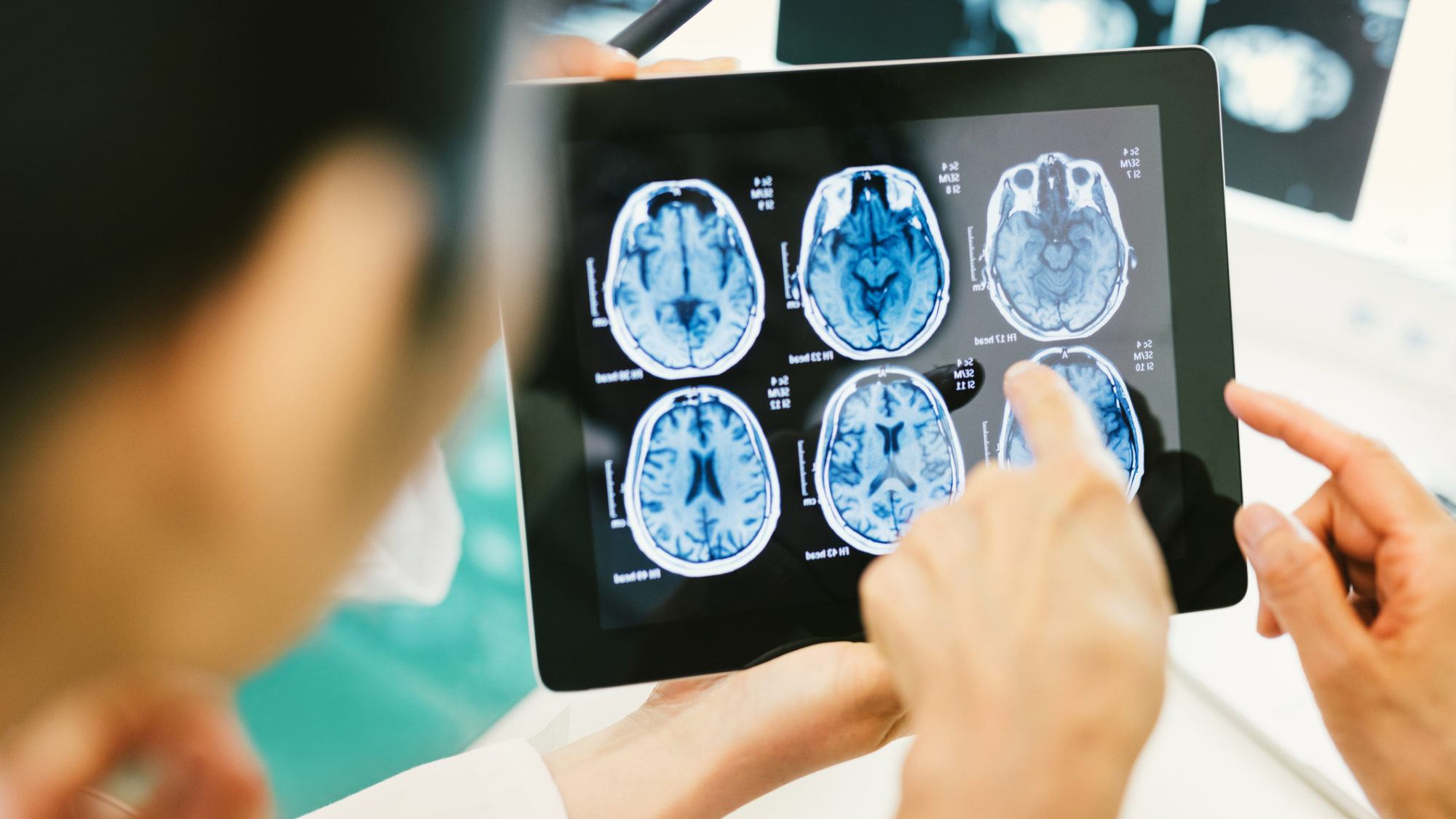
Auditory Brainstem Implant
Auditory Brainstem Implant Overview
An auditory brainstem implant, or ABI, is a highly specialized device used to improve hearing sensations. The surgically implanted device consists of an external microphone and processor, which are positioned behind the ear to pick up sounds in the environment. The sound waves are transmitted as electrical signals to a receiver underneath the skin, which then sends the signals to electrodes that stimulate hearing pathways on the brainstem.

What is an auditory brainstem implant used to treat?
Auditory brainstem implants are designed for patients with a rare genetic condition called neurofibromatosis type 2 (NF2). Patients with this disorder are prone to developing benign tumors called acoustic neuromas, or vestibular schwannomas, on both of their hearing/balance nerves. People with NF2 are expected to eventually become deaf in both ears, either from the tumors themselves or from treatment to remove them. As the tumors disrupt hearing signals between the brain and the outer parts of the ear, typical hearing rehabilitation devices—such as hearing aids and cochlear implants—may be ineffective.
Common Questions
Am I a good candidate for an auditory brainstem implant?
For patients with NF2, and a few other rare conditions, an auditory brainstem implant can be a solution to regain some hearing sensation in the implanted ear. Typically, these implants are placed at the time surgery is performed to remove a large or growing acoustic neuroma.
Your surgeon will counsel you on whether you might be a good candidate for an ABI and what hearing outcomes may be possible in your individual case. While not all patients with NF2 will be deemed good candidates, and not all implants are successful in restoring hearing sensation, an ABI can enable a patient to overcome major sensory disability and remain connected with the world around them.
How can I receive a consultation for an auditory brainstem implant?
If NF2 affects you or a family member and you are interested in learning more about ABI, please contact our ENT department. We will promptly schedule you for a consultation with our neurotologist and audiology team.



